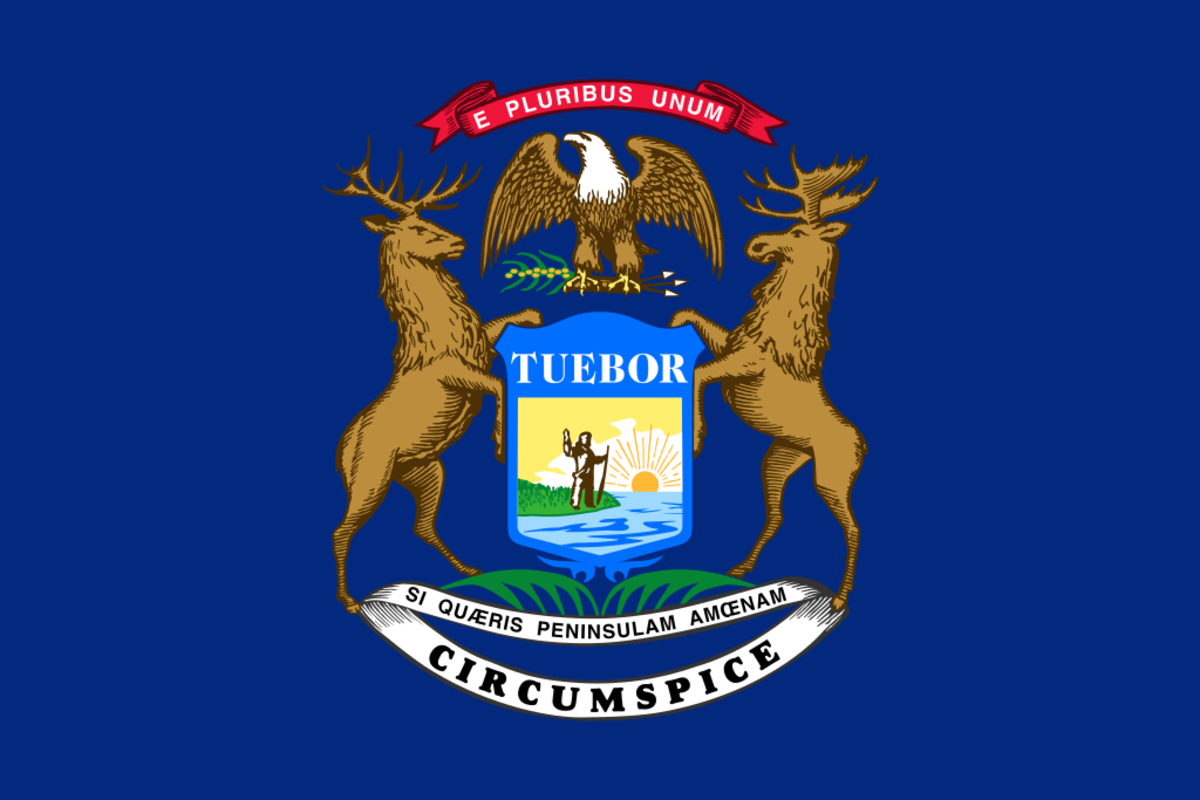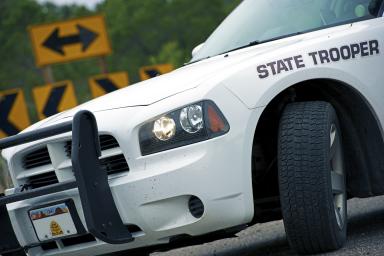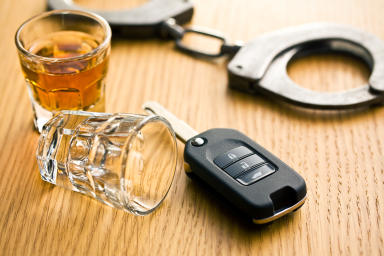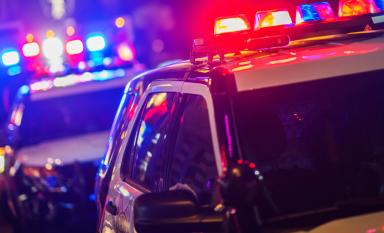Michigan DUI Laws

According to the state police’s year-end report, 9,331 alcohol-related accidents took place throughout Michigan in 2022. Over 300 of these crashes were fatal, resulting in 322 deaths. Although the recorded total was 10% lower compared to the 2021 statistics, it remains significantly high. With 1,420 crashes, Wayne County led Oakland and Kent counties, which had 972 and 785 crashes, respectively. The majority of the incidents took place in October, and they mostly involved people between the ages of 25 and 34.
To curb the occurrence of impaired driving crashes, Michigan’s government agencies and law enforcement personnel are working together to implement campaigns that raise awareness against drunk driving and enforce laws with heightened strictness. These initiatives include “Drive Sober or Get Pulled Over” and “If You Feel Different, You Drive Different.” There are also statewide efforts carried out by local organizations, such as the Michigan Impaired Driving Action Team Action Plan.
This article will offer a basic understanding of the laws that prohibit motorists in Michigan from driving a vehicle while under the influence of alcohol. It will also detail the legal requirements and statutory guidelines involved in a lawsuit for those who wish to sue a drunk driver for their injuries and losses.
Michigan’s General DUI Laws and Guidelines
An impaired driving offense in Michigan is classified as either operating a vehicle while under the influence of alcohol or drugs or operating a vehicle while visibly impaired by such substances. In general, a motorist is convicted of OWI, which is equivalent to a DUI in other states, if their blood alcohol concentration level is 0.08% or higher. However, they can still be charged with OWVI if they show obvious signs of impairment due to intoxication, regardless of their BAC level.
An aggravated charge is imposed on any person whose BAC level is equal to or higher than 0.17%, which results in harsher penalties. The same charge is applied to those who commit other serious offenses, such as driving with a passenger under the age of 16 or causing an accident that results in the injury or death of another individual.
If a person is convicted of OWI, they will face both criminal penalties and a license suspension, which are addressed separately by the criminal courts in the state and the Michigan Secretary of State, respectively. Because of this, any criminal verdict rendered in court against an impaired driver will not have any bearing on the issue concerning their license, and vice versa.
Michigan also has a zero tolerance law, which prohibits motorists under the age of 21 from driving a vehicle while intoxicated. Under the same law, an underage driver will face OWI charges if their BAC level is equal to or more than 0.2%.
Michigan’s Implied Consent Law
Under the implied consent law, a driver in Michigan is automatically deemed to have given their consent to undergo a chemical test once they choose to operate a vehicle. This test will analyze a person’s breath, blood, or urine to measure their BAC level and determine whether they are intoxicated. It will be carried out at the request of a law enforcement officer who has enough reason to believe that they are driving while impaired or under the influence of alcohol, or if they have killed another person through vehicular manslaughter as a result of their intoxication.
If an individual refuses to submit to a chemical test, they will be penalized accordingly. However, the law makes an exception for drivers with certain medical conditions. Individuals with diabetes, hemophilia or other conditions requiring anticoagulant medication under doctor supervision are not considered to have given consent for a blood draw. This aims to protect those whose health could be endangered by chemical testing.
Michigan’s Open Container Law
In addition to OWI and OWVI laws, Michigan explicitly prohibits drivers and passengers from having an open container of alcoholic beverages within a moving vehicle on a highway or in any space that is open to the public. Exceptions only apply if the container in question is within a locked trunk or glove compartment, behind the last upright seat of the vehicle, or in any part of the vehicle that is not normally occupied by a driver or passenger.
What Are the Penalties for a DUI in Michigan?
Michigan imposes different penalties for those who violate local OWI ordinances, with repeat offenders facing increasingly stringent sanctions. As mentioned above, the state also punishes motorists who refuse to submit to a breath test under the implied consent law, have a passenger who is younger than 16 at the time of their offense, or have a BAC level of 0.17% or greater.
Under Michigan law, impaired drivers face the following consequences:
In addition to these penalties, OWI offenders will have their license suspended for a minimum of 180 days, or one year if their BAC level reaches or exceeds 0.17%. A judge can order the forfeiture or immobilization of their vehicle, which is mandatory starting with their second offense. Impaired drivers may also be required to drive with an ignition interlock device if they are issued a restricted driver’s license after 45 days of suspension, and they will shoulder any costs related to the device’s installation and upkeep. Additionally, offenders with heightened penalties must complete an alcohol treatment program.
In comparison to an OWI offense, a first-time OWVI infraction will involve a 90-day suspension of an impaired driver’s license, with a restricted license being immediately imposed. However, a charge will result in a 180-day suspension if the offender is found to have used any controlled substance.
If a motorist violates Michigan’s implied consent law, they will automatically have their license suspended for one year. If they commit another refusal offense within the next seven years, they will face a two-year suspension.
An offender who is convicted of violating the state’s open container law must undergo and complete a substance abuse screening and assessment at their expense. They will also be sentenced to community service.
If an offender injures or kills an individual as a result of their impaired driving, they will face more serious sanctions, including:
Five years in prison (15 years if the accident results in the victim’s death and 20 years if the killed victim is a police officer or firefighter).
$1,000 to $5,000 in fines ($2,500 to $10,000 if the accident results in the victim’s death).
Mandatory vehicle immobilization.
Lastly, if a person under the age of 21 is convicted of violating Michigan’s zero tolerance law, they can be fined up to $250 and serve a maximum of 360 hours of community service. It should be noted that if an underage motorist commits another drunk driving offense within seven years after committing a zero tolerance violation, the latter will be treated as their second OWI offense, and they will receive heightened sanctions accordingly.
Michigan’s Dram Shop Law
Michigan has a dram shop law that allows drunk driving accident victims to sue any licensed establishment that served or sold alcohol to the motorist who caused their injuries. This counts if a bar, restaurant, or liquor store gave alcohol to the driver even if they were already visibly intoxicated, thus contributing to their impairment. This also covers cases where an establishment served or sold alcoholic beverages to an underage driver who caused an accident later on.
If a plaintiff wishes to sue an establishment for contributing to a drunk driver’s intoxication, they must submit a written notice to the establishment in question within 120 days after informing their attorney of their intent to pursue such a claim. Any person who fails to do so will risk having their claim dismissed by the court unless they can prove that the basis for suing the establishment was not known or could not have been reasonably discovered within the 120-day timeframe.
Michigan’s dram shop law does not count instances where a person hosting a party or gathering gave alcohol to a driver who would then cause an accident due to their intoxication. As such, victims in the state cannot sue social hosts for damages, unlike in other states where local laws allow such legal action. However, a host can still be convicted for furnishing alcoholic beverages to minors, and they can be sued based on a negligence theory for failing to exercise their duty of care as a host.
How Much Can Someone Sue For a Drunk Driving Injury in Michigan?
Drunk driving accident victims in Michigan can potentially recover the full amount of compensatory damages from an impaired driver thanks to the state’s lack of damage caps in most personal injury cases. Such damages involve both actual monetary losses and those stemming from non-tangible factors caused by the underlying accident. These can include the following:
Present and future medical costs.
Lost wages.
Loss of earning capacity or employment opportunities.
Repair or replacement expenditures for damaged property.
Pain and suffering.
Emotional distress.
Loss of enjoyment of life.
Loss of companionship.
While Michigan does not permit punitive damages unless they are expressly allowed by a statute, there may be circumstances in which victims can pursue and recover exemplary damages from defendants. Like punitive damages, exemplary damages are only allowed if it is proven that the defendant in a case acted with willful, malicious, or egregious conduct. However, they are imposed to compensate the victim in a case instead of punishing the defendant. They are also not limited by any statutory damage caps.
Lastly, in each case where a victim sues an establishment under the state’s dram shop law and the court declares that the service or sale of alcohol is the proximate cause of the defendant’s intoxication, the total damages that the victim can recover should not go below $50.
Michigan’s Modified Comparative Negligence Rule
Despite Michigan’s lack of any specific limitations on damages in accidents related to drunk driving, the total amount of losses a victim can recover may be affected by the state’s modified comparative negligence rule. According to this legal principle, if a person is partially at fault for the accident that caused their injury, their total recoverable damages will be deducted based on the percentage of their assigned fault.
In states that follow the modified comparative negligence rule, a victim will be totally barred from recovering any damages if their fault reaches or exceeds a certain percentage. In Michigan, this occurs if a plaintiff’s fault is equal to or greater than 51%.
The Statute of Limitations in Michigan
Under Michigan’s civil statute of limitations, those who are injured by impaired drivers have up to three years to file a lawsuit and pursue compensation for their losses. This timeframe begins on the date of the accident that causes a potential plaintiff’s injury and damages. If the victim of a crash perishes from their injuries, the statute will begin on the date of their passing.
The statute changes slightly if a drunk driving accident victim wishes to sue an establishment under Michigan’s dram shop law. In this case, the plaintiff will have up to two years to file a suit against the bar, restaurant, or liquor store in question. However, the same three-year deadline will apply if the plaintiff sues the establishment on the basis of a negligence theory instead of a dram shop claim.
While Michigan’s statutes of limitations are strictly followed, there are possible instances when the deadline starts counting down at a later date due to the discovery rule. This applies if the plaintiff in a case does not learn about their injury from an accident until later on. Under Michigan law, the statute will only begin on the date they discover their injury or should have reasonably discovered it
There are also scenarios when state law allows extensions, giving plaintiffs more time to take legal action. Specifically, the statute will be “tolled” or delayed if the potential plaintiff in a case is legally insane or under 18 years of age, and it will only continue once they recover from their insanity or turn 18. However, these disabilities must already be present at the time when the plaintiff’s cause of action arises; otherwise, the court will not take them into consideration.
Additionally, the statute can be delayed if the defendant in a case is absent from the state during the time that a lawsuit or claim can be filed against them. If their period of absence lasts for more than two months, it will not be counted as part of the statute’s duration.
Resources for Folks Injured by an Impaired Driver in Michigan
State Bar of Michigan
The State Bar of Michigan guides local residents who are involved in various legal issues as they seek aid. On its website, it provides information on how to use the Lawyer Referral Service, which allows people to schedule a 25-minute preliminary consultation with an attorney for a fee of $25; those with concerns related to personal injury can make use of the service for free. The organization also allows individuals to search for lawyers using their name, location, and practice areas through the Find-A-Lawyer section. Additionally, residents can download and submit a complaint form to report an individual or company for unauthorized practice of law.
Michigan State Police - Traffic Crash Reporting
The Michigan State Police allows motorists to submit reports of motor vehicle accidents online through the Traffic Crash Reporting Unit’s section on its website. It offers access to resources that discuss different topics, including the steps involved in filing an eCrash report through iyeTek. Motorists can also learn how to complete the UD-10 form using relevant information concerning the type of accident that occurred, along with road conditions, vehicles, locations, and any contributing circumstances. In addition, the website is open to those who wish to purchase copies of a crash report, which can be obtained for a fee of $10.
Mothers Against Drunk Driving - Michigan
Mothers Against Drunk Driving is a nonprofit organization dedicated to providing free legal aid to individuals and families who have suffered harm and losses in drunk driving accidents. Its team assists people in Michigan as they prepare legal statements and look for attorneys who can represent them in court. It also helps drunk driving accident victims connect with local support groups and other survivors who have gone through similar experiences. Additionally, it raises awareness about the dangers of drunk driving and assists potential plaintiffs in searching for information relevant to their legal situation by providing access to resources that discuss local laws and guidelines.
Expertise.com StaffAuthor
Step into the world of Expertise.com, your go-to hub for credible insights. We don't take accuracy lightly around here. Our squad of expert reviewers, each a maestro in their field, has given the green light to every single article you'll find. From rigorous fact-checking to meticulous evaluations of service providers, we've got it all covered. So feel free to dive in and explore. The information you'll uncover has been stamped with the seal of approval by our top-notch experts.




